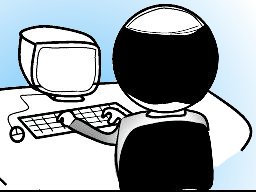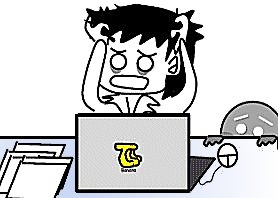Dr. Brian Johnson, Managing Editor of The Chemical Record, addresses some of the issues faced by reviewers, from the perspective of an editor’s seat.
1 Consider the level of the journal.
Many chemistry journals receive so many manuscripts that they can only accept a small portion, editors often state directly in the review invitation that they can only accept the top xx % of manuscripts.
2 Always respond to an invitation to peer review.
If you must decline a peer-review invitation because of a different subject expertise or lack of time, a simple reply to this effect saves everyone time and especially benefits the author. This ensures that the entire system runs more efficiently.
3 Improve the manuscript.
Peer-review of a manuscript not only helps the editor make a decision on acceptance or rejection, but serves the greater purpose of improving the overall quality of the manuscript. Point out unclear assertions or holes in the article’s argumentation and offer constructive ways to better communicate the findings, also when you recommend rejection.
4 Explain or support your judgments.
Even a positive one-liner such as “Nice article, should be published as is” deserves some supporting statements, e.g., what is nice about the article.
5 If language is bad, but you can understand the basic message, see if you can guide the authors on what improvements need to be made.
If the article is completely incomprehensible, there is not much a reviewer can do but suggest rejection on that basis. Otherwise state aspects that need to be communicated better, such as parts of the discussion, if you recommend resubmitting to the same journal after language improvement, would consider looking at the paper again, etc.
6 Every article should contain a well-balanced list of references.
This is helpful to the reader, fair to competing authors, and gives due recognition to the initial discoveries and related work that led to the work under assessment. Every reviewer, even without looking up every reference, should be able to evaluate whether these qualities are met.
7 Delegation without notifying the editor is dishonest and against most ethical guidelines.
Inform the editor about delegating the peer-review or decline the request and nominate a colleague. This is especially good for giving up-and-coming researchers some direct experience with the process. It is assumed and expected that you have carefully considered that the person you delegate the peer-review to also has the breadth of experience to handle the evaluation fairly and competently.
8 Every editor will appreciate an honest statement about a conflict of interest.
Most reviewers will know the author well because they do research in a similar area and may belong to a tight community, and many within such a community are all essentially “friends” (or competitors). A reviewer can certainly give a fair assessment of an article that is written by a friend or competitor. Any significant conflict of interest should be revealed to the editor.
9 Judge the article content, not the person who wrote it.
The editor may filter out reports that contain significant personal criticism; also an author is generally more open to the suggestions when the report addresses the scientific content on a neutral basis.
10 Don’t tell an author that you are currently reviewing his/her manuscript.
This can entice the authors, whether consciously or subconsciously, to try to influence your assessment before you have submitted the report. However, for most journals, it is perfectly acceptable to reveal your identity voluntarily within the report itself so that the author will see it when receiving the decision. Otherwise, your identity is kept anonymous.
11 Notify the editor if you suspect plagiarism.
If you suspect plagiarism, including self-plagiarism, but cannot find the source or specify exactly what is being plagiarized, notify the editor of your suspicion. Most editors have access to software that can check for plagiarism but is generally used only when there is suspicion. If plagiarism is discovered only after publication, the consequences are worse for both the author and the readers because a retraction may have to be carried out.
12 Ask the editor to help supply missing information.
While reviewing a manuscript, you may come across a lack of information that you need for conducting a proper evaluation. Your request is helpful toward improving the manuscript because the authors can already consider expanding their Supporting Information file.
Pictures taken from the Wonderlab Comic
Reference
- Across the desk: An Editor’s guide to peer review best practice,
Brian Johnson,
Wiley Exchanges February 12, 2015.
The tips above give one editor’s point of view, but are not meant to replace the more specific considerations of the ethical guidelines that are followed by each journal. Major journals such as Angewandte Chemie International Edition, Chemistry – An Asian Journal, The Chemical Record, as well as all journals of ChemPubSoc Europe and the Asian Chemical Editorial Society (ACES) follow the guidelines published by the European Association of Chemical and Molecular Sciences (EuCheMS). The ethical guidelines of EuCheMS are included in their list of publications.
Also of Interest
- Video: 12 Tips for Referees





